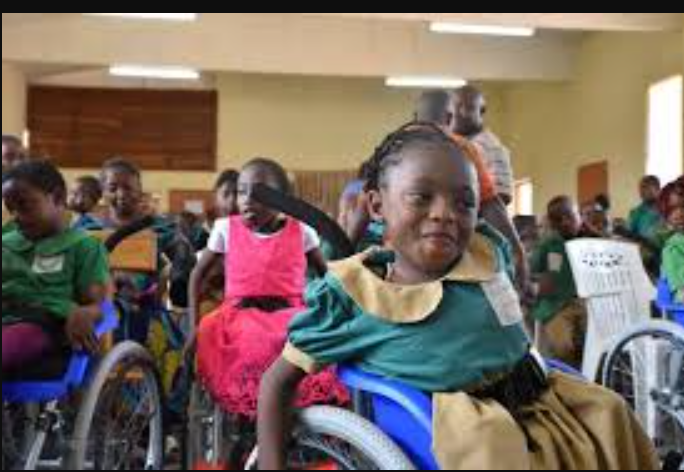For most children, freedom means running on the playground, dancing at school events, leading a club, or scoring a goal for their team. But for millions of Nigerian children living with disabilities, such everyday joys are still out of reach — not for lack of talent, but due to exclusion.
Despite being physically present in classrooms, many of these children are systematically sidelined from extracurricular activities — sports, arts, clubs, and student leadership — which are crucial for self-expression, social integration, and emotional well-being.
This glaring gap is at the heart of renewed calls for Nigeria to prioritise inclusive extracurricular education, ensuring that freedom for all children includes not just access to academics, but to play, create, lead, and belong.
According to the World Health Organisation, more than one billion people globally live with disabilities, and Nigeria is home to at least 33 million of them, many of whom are children. Yet, the lack of access to inclusive extracurricular education is contributing to the country’s broader education crisis, where over 10.5 million children remain out of school.
For those enrolled, exclusion from non-academic life reinforces stigma and isolation — limiting not only their future prospects but also robbing their peers of the chance to learn empathy, respect, and collaboration.
While Nigeria passed the Discrimination Against Persons with Disabilities (Prohibition) Act in 2018, implementation — particularly in education — remains inconsistent, with many schools still lacking inclusive policies, facilities, and trained personnel.
Advocates are now urging the Federal Ministry of Education, in collaboration with state education boards, to create a national framework mandating disability inclusion across all extracurricular programmes.This framework would:
- Require schools to include children with disabilities in sports, arts, clubs, and leadership positions;
- Be backed by dedicated budget lines from the Universal Basic Education Commission (UBEC);
- Include regular audits and school accreditation standards to track compliance.
“Children with disabilities have the right not just to learn, but to participate, to express themselves, and to be seen,” said an advocate with a leading inclusive education NGO. “This is about building a generation where every child belongs.”
Local initiatives like the recent inclusive swimming programme in Lagos are proving that grassroots action can pave the way for nationwide transformation. These community-led efforts, however, often go underfunded and unrecognised.
To support them, experts are proposing the creation of a federal Inclusion Innovation Grant — a competitive fund for grassroots organisations making extracurricular activities accessible to all. This fund could be co-financed by private sector partners and development donors, with additional incentives like tax credits and public recognition schemes.
Experts stress that inclusion must also start in teacher-training institutions. The National Commission for Colleges of Education is being urged to integrate disability studies modules into teacher curricula and mandate practical experience in inclusive settings.
“Teachers must be trained not only to teach inclusively but to engage inclusively — in drama clubs, sports teams, and beyond,” one education consultant said. “Without this, inclusion remains a theory, not a reality.”
Professional development workshops, certification courses, and access to instructional materials should also be made widely available for in-service teachers — ensuring no child is left behind because a teacher lacks the skills or confidence to include them.
At its core, this movement is about redefining what freedom means for Nigerian children. Not just the freedom to go to school — but the freedom to play, perform, participate, and lead.
“Inclusion isn’t charity. It’s justice,” said a parent of a child with a physical disability. “We’re not asking for pity. We’re asking for equal opportunity — for our children to dance in the school play, compete in sports day, or lead a club, just like everyone else.”
As Nigeria looks to build a more equitable future, advocates insist that true educational freedom must extend beyond the chalkboard — and into every playground, art studio, sports field, and student council.
If inclusion is not built into the fun, friendship, and freedom of school life, then education is incomplete. It’s time for Nigeria to ensure every child, regardless of ability, has the chance to shine — inside and outside the classroom.

